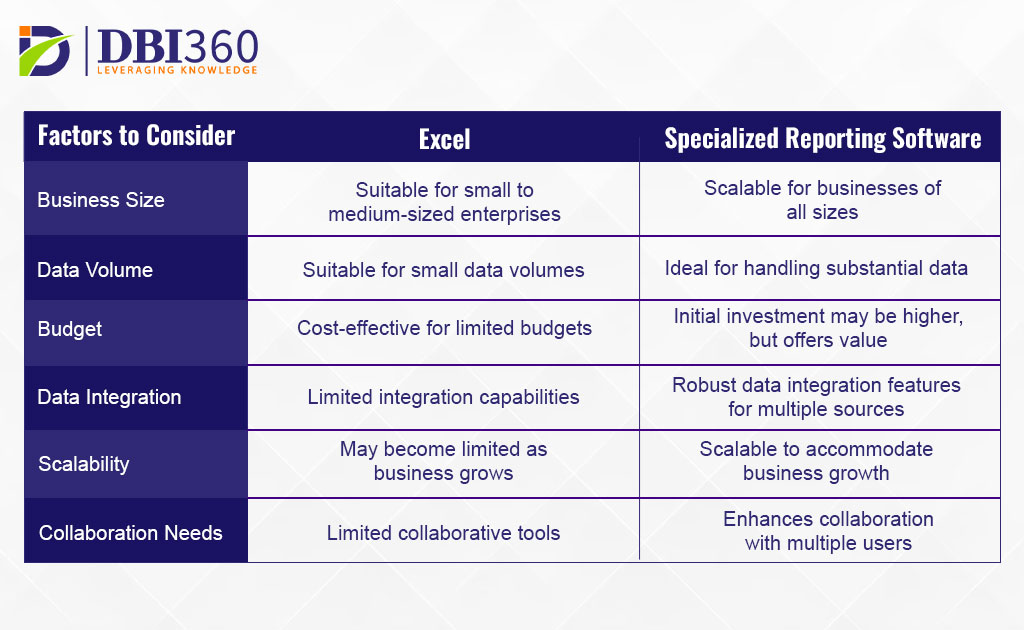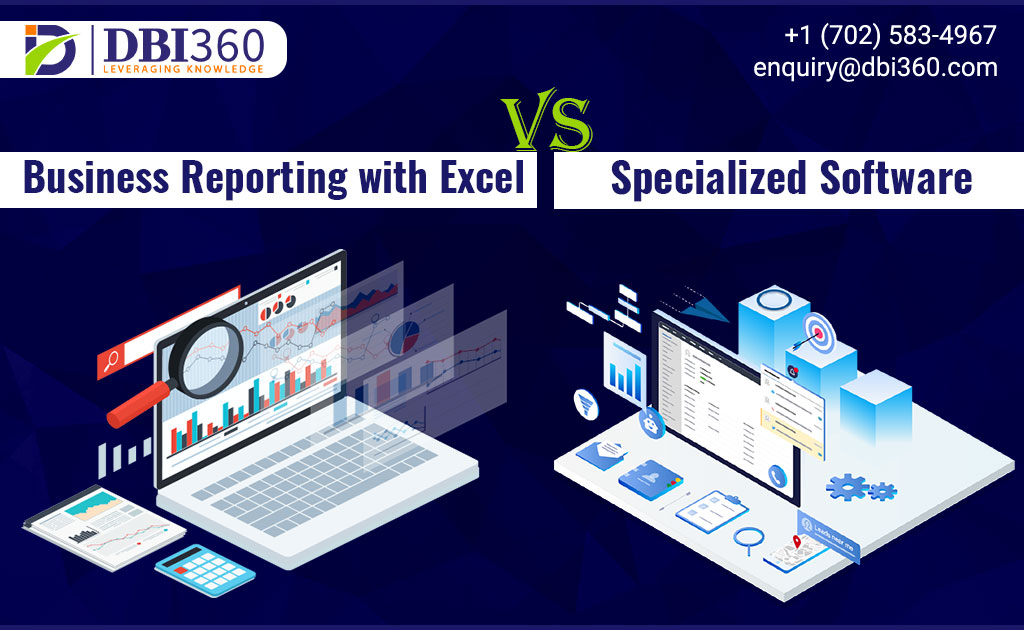In the fast-paced world of business reporting, the choice of tools can significantly impact your efficiency, accuracy, and overall success. When it comes to business reporting solutions, two options often come to mind: Microsoft Excel and specialized reporting software. In this article, we’ll delve into the strengths and limitations of both to help you make an informed decision that best suits your needs in the nutraceutical industry.
The Role of Business Reporting Solutions
Business reporting solutions play a pivotal role in modern organizations, particularly in industries like nutraceuticals, where data-driven decisions are crucial. These solutions enable companies to collect, analyze, and present data in a structured format, facilitating informed decision-making and strategic planning.
Microsoft Excel: A Familiar Friend
Microsoft Excel is arguably the most familiar and widely used tool for business reporting. Its popularity can be attributed to its simplicity, versatility, and accessibility. Here are some key aspects to consider:
Pros:
-
User-Friendly: Excel is known for its user-friendly interface, making it accessible to users with varying levels of expertise.
-
Flexibility: It’s highly adaptable, allowing users to create custom reports and dashboards to meet specific needs.
-
Cost-Effective: For small businesses, Excel is often a cost-effective option as it’s typically included in Microsoft Office packages.
-
Basic Analysis: Excel offers fundamental data analysis features, including formulas, charts, and pivot tables.
Cons:
-
Limited Scalability: Excel may not handle large datasets efficiently, potentially leading to performance issues and file size limitations.
-
Version Control: Collaborative work on Excel files can be challenging, leading to version control and data integrity issues.
-
Error-Prone: Manual data entry and calculations increase the risk of errors, impacting the accuracy of reports.
Specialized Reporting Software: Unleashing Power
In contrast, specialized reporting software tailored for nutraceutical business management offers advanced features and capabilities. Here’s how it stacks up:
Pros:
-
Data Integration: Specialized software can seamlessly integrate data from various sources, providing a comprehensive view of your nutraceutical business.
-
Automated Analysis: Advanced algorithms and machine learning capabilities can automate complex data analysis, reducing the risk of errors.
-
Scalability: These solutions can handle large datasets efficiently, ensuring smooth performance as your business grows.
-
Customization: Tailored features and templates cater specifically to the needs of the nutraceutical industry.
-
Collaboration: Built-in collaboration tools enable teams to work simultaneously on reports, enhancing efficiency.
Cons:
-
Learning Curve: Specialized software may have a steeper learning curve compared to Excel, requiring training for proficiency.
-
Cost: Licensing and subscription costs can be higher, particularly for enterprise-level solutions.
Making the Right Choice
The choice between Excel and specialized reporting software depends on your specific requirements and the scale of your nutraceutical business. Small to medium-sized enterprises (SMEs) with limited budgets may find Excel sufficient for basic reporting needs. However, as your business grows and data complexity increases, specialized software becomes more valuable.
Consider the following factors when making your decision:

Conclusion
In the nutraceutical industry, where precision and data-driven decisions are paramount, choosing the right business reporting solution is crucial. While Excel remains a valuable tool for basic reporting needs, specialized reporting software can unlock the full potential of your data. It offers advanced analysis, scalability, and collaboration features that can drive efficiency, accuracy, and, ultimately, your nutraceutical business’s success. Carefully assess your business requirements and future growth plans to determine which solution aligns best with your needs.

